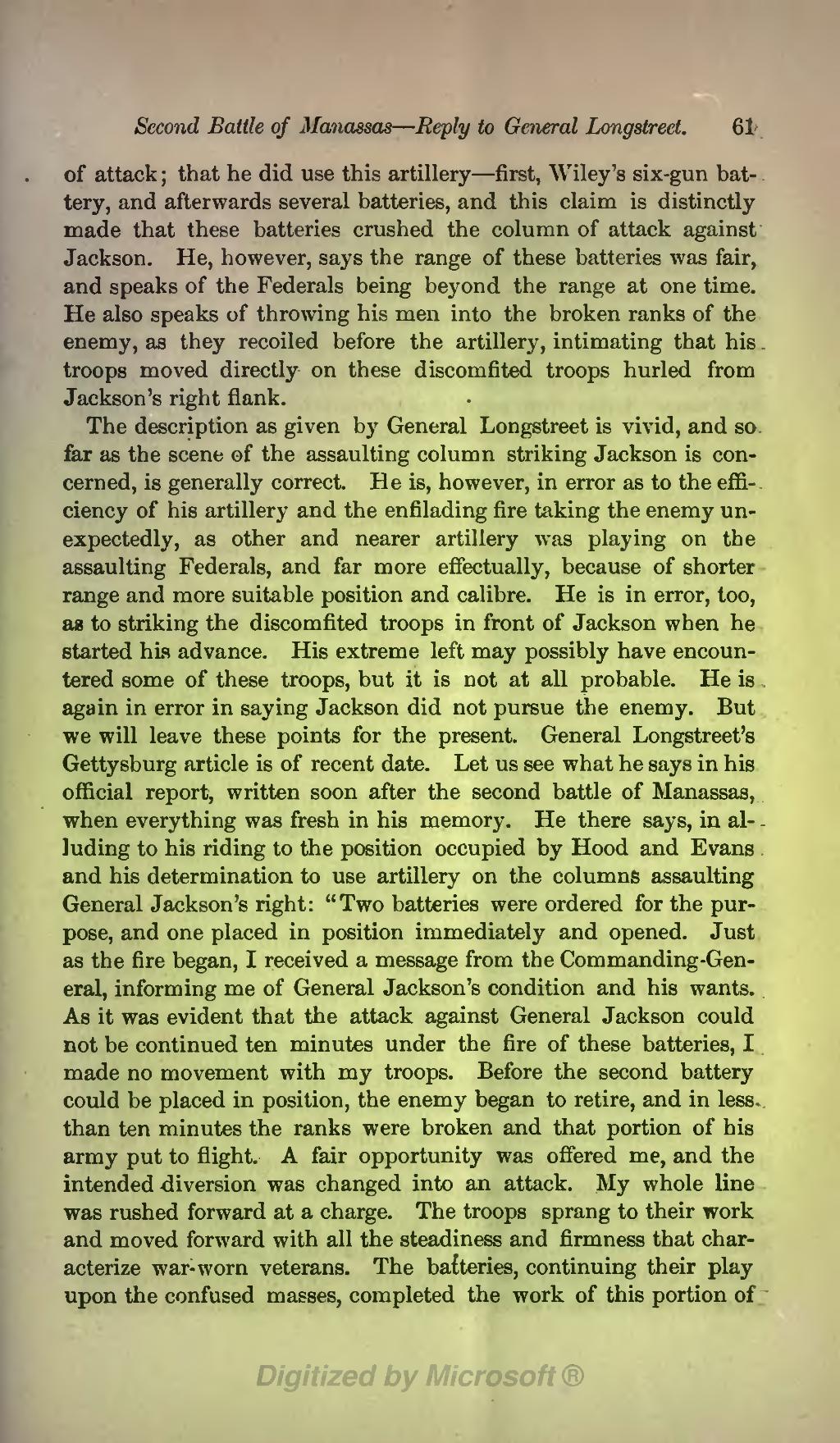of attack; that he did use this artillery—first, Wiley's six-gun battery, and afterwards several batteries, and this claim is distinctly made that these batteries crushed the column of attack against Jackson. He, however, says the range of these batteries was fair, and speaks of the Federals being beyond the range at one time. He also speaks of throwing his men into the broken ranks of the enemy, as they recoiled before the artillery, intimating that his troops moved directly on these discomfited troops hurled from Jackson's right flank.
The description as given by General Longstreet is vivid, and so far as the scene of the assaulting column striking Jackson is concerned, is generally correct. He is, however, in error as to the efficiency of his artillery and the enfilading fire taking the enemy unexpectedly, as other and nearer artillery was playing on the assaulting Federals, and far more effectually, because of shorter range and more suitable position and calibre. He is in error, too, as to striking the discomfited troops in front of Jackson when he started his advance. His extreme left may possibly have encountered some of these troops, but it is not at all probable. He is again in error in saying Jackson did not pursue the enemy. But we will leave these points for the present. General Longstreet's Gettysburg article is of recent date. Let us see what he says in his official report, written soon after the second battle of Manassas, when everything was fresh in his memory. He there says, in alluding to his riding to the position occupied by Hood and Evans and his determination to use artillery on the columns assaulting General Jackson's right: "Two batteries were ordered for the purpose, and one placed in position immediately and opened. Just as the fire began, I received a message from the Commanding-General, informing me of General Jackson's condition and his wants. As it was evident that the attack against General Jackson could not be continued ten minutes under the fire of these batteries, I made no movement with my troops. Before the second battery could be placed in position, the enemy began to retire, and in less than ten minutes the ranks were broken and that portion of his army put to flight. A fair opportunity was offered me, and the intended diversion was changed into an attack. My whole line was rushed forward at a charge. The troops sprang to their work and moved forward with all the steadiness and firmness that characterize war-worn veterans. The batteries, continuing their play upon the confused masses, completed the work of this portion of
